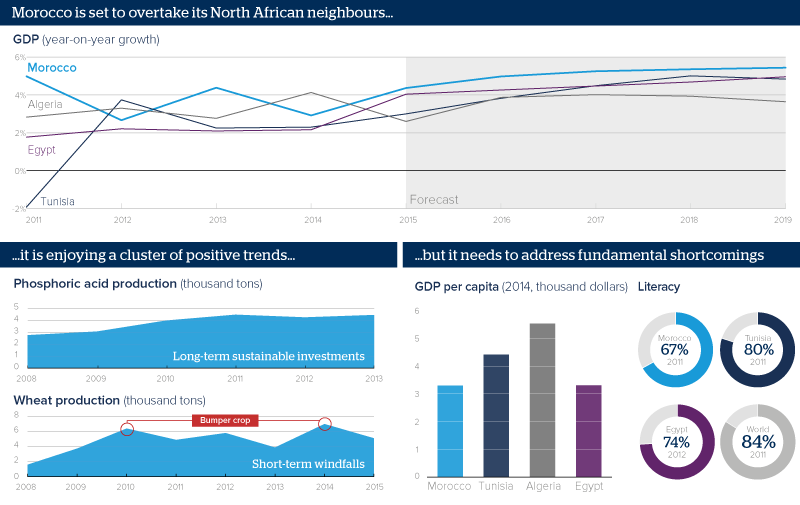Positive trends will boost Moroccan economy
Economic prospects are looking up for Morocco, but the country has a long way to go

Source: IMF, World Bank, Morocco Ministry of Economy and Finance, UNESCO, US Department of Agriculture
Outlook
Morocco is enjoying a cluster of positive trends: the fall in oil prices and a bumper cereal crop have reduced its import bill, phosphate production is rising steadily, and the two-year-old Renault-Nissan plant in Mellousa produced 174,245 vehicles in 2014 -- with the capacity to increase production to 400,000.
However, Rabat will need quickly to capitalise on these trends as they may be short-lived: commodity prices and the weather are volatile. Morocco also has a long way to catch up compared to its neighbours -- literacy lags the world average of 84.1%. Nonetheless, underlying investments in the automotive and phosphate sectors, along with political stability, bode well for investment.
Impacts
- The development of the car industry is helping diversify Morocco's exports and make it less vulnerable to commodity prices.
- The improved economic climate will help the re-election prospects of the ruling Justice and Development party (PJD) in 2016.
- Good working relations between King Mohammed VI and the PJD increase the prospects for deeper reforms.
- However, pension reform will be a contentious issue in the run-up to the elections.
See also
- The palace will have the final say in Moroccan policy - Mar 29, 2017
- Low oil prices will benefit Morocco - Mar 9, 2015
- More graphic analysis